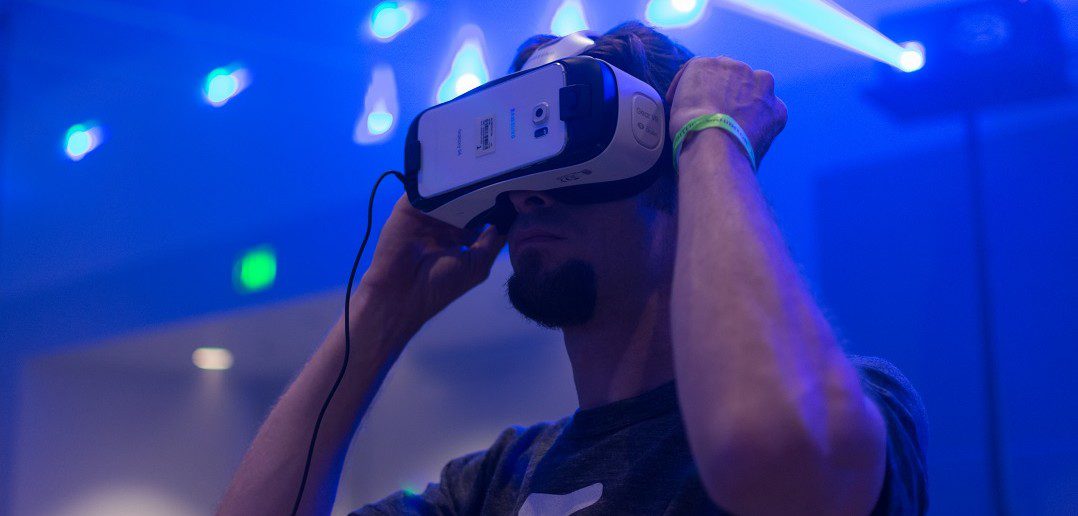The world is moving ahead at breathtaking speed and the world of content creation, television and media as a whole is no exception. What with virtual reality introducing new possibilities for immersive storytelling; companies like Netflix and Buzzfeed grabbing increasingly larger pieces of the audience’s attention; and financing structures becoming increasingly innovative all around us, there is a lot to wrap one’s head around, and even more to take into consideration when it comes to planning for the near and not-so-near future. At the turn of the year I published my annual look at the year that was, aided by some of the brightest mind in the global multiplatform content industry, from all corners of the world. Based on my talks with them, and on what my own research has unearthed, here are five things you should not miss this year:
Virtual Reality
I’m guessing no one has missed that this is the next big thing. Tech companies as well as content creators are falling over themselves to create narratives and experiences that suit the new, immersive media. Facebook’s Mark Zuckerberg for one is convinced that most of the content we will consume on social media will soon be video; and an increasing share of that will be in immersive, 360° formats. But what stories will work the best and how, is still up for debate. Mike Monello of Campfire NYC (and of Blair Witch Project fame) sees something new arising: ”A lot of money and talent are flooding into the VR space, hoping to crack the nut of VR storytelling. VR is incredible for so many experiences, but linear storytelling doesn’t seem to be one of them. I’m not being a crotchety old man here — over the last 25 years I’ve collected numerous VR headsets and gear. A VR language will emerge, and it will be exciting, but it won’t be centred around storytelling.”
Companies to keep tabs on here – Google, Oculus, Magic Leap.
Innovative publishing models
With multiplatform storytelling becoming increasingly important as revenue needs to be garnered from a greater number of sources (and as a larger share of the possible audience is reached as the stories are spread out over more platforms and made more easily accessible), efficient ways of publishing and making money off of the products are becoming increasingly interesting. Wattpad has been one of the go-to arenas for publishing, but hybrid forms are now increasing the competition. Caitlin Burns, formerly of Starlight Runner Entertainment and a host of big properties: ”I’m really excited about Serial Box Publishing; they’re using a different model to incubate intellectual properties taking advantage of some of the new thinking around distributed equity sharing and ideas from multiple different platforms. […] For a self-identified bookworm, finding ways to take the new behaviours around serialised reading people see on Wattpad, and finding sustainable ways to create new work in that space is a big step forward.”
Companies to follow: Serial Box Publishing, Reedsy
The Collective Journey
Every storyteller is (or at least should be) familiar with the classic Hero’s Journey. It is the basis of a large number of or best known stories, and it has worked wonders when it comes to creating bestsellers and fantastic hits on television and in films.
Increasingly though, the notion of the Hero’s Journey is coming into question. As the world moves from individualism towards communities and collaboration, a reliance on – or an automatic leaning towards – the notions of the Hero’s Journey can lead to damaging consequences in the real world. In order to better reflect the world we live in today, and in order to better be able to create movements and experiences that positively influence choices, innovations and our daily life, the principle of the Collective Journey has started to take hold among creators all over the world. Jeff Gomez of Starlight Runner Entertainment:
”[The Collective Journey is a] narrative model that can function as an alternative to The Hero’s Journey popularised by Joseph Campbell. We’re calling this new model The Collective Journey, and it takes into account the nonlinearity of the kind of communal storytelling we’re seeing in social media, and the new dialogue-based storytelling happening between storytellers and audiences across all media around the world. Transmedia and transmedia-adjacent people like Maya Zuckerman, Joe Brewer, Jordan Greenhall and Alan Berkson have been pondering these issues over the past year, and Starlight Runner is actually in the process of integrating The Collective Journey model into our solution for the Australian activation. I can’t think of much that is more exciting than this, because if it works at all, we’ve made a significant breakthrough in the transmedia space.”
People to follow: Jeff Gomez, Maya Zuckerman
Futuristic Research
It’s a challenge to predict what will be the future hits, where will the audience move, how will their habits and needs and wants change, and how can we benefit – storywise, production-wise, revenue-wise and in any number of other ways. Luckily, there are quite a lot of other people pondering these matters as well, and some of them are doing amazing research and experimentation into what works, what doesn’t and why.
Over at the Columbia Digital Storytelling Lab, experimentation has been ongoing regarding collaborative storytelling and possible integration of the Internet of Things, in the form of a global prototype centered around a detective narrative in Sherlock Holmes and the Internet of Things. They are now opening up their course of 2016 for the public, inviting everyone along to look at ”the art, craft and biz of storytelling in the 21st century” – well worth a follow.
At the same time, do not forget to follow the research over at the MIT Media Lab – pioneering research into all kinds of aspects of media since 1985. As progressive as ever, their output is also worth following.
And, naturally, the Innovation Lab over at USC Annenberg deserves attention. They are conducting ”research that combines theory and practice to understand the ongoing evolution of media and its impact on governments, businesses, education, creators and consumers, with a particular focus on the future of the media landscape and its impact on society over the next 3-5 years.”
I don’t know about you, but that sounds pretty interesting to me. Not to mention they have Henry Jenkins onboard, along with a number of other brilliant scholars.
MIPTV 2016
Well, if there is one event where you can be sure to be able to gauge where you fit on today’s volatile content market, it’s MIPTV in April. There will be some of the most interesting companies around presenting their new content and innovations, in particular at the third edition of MCN showcase the MIP Digital Fronts; there will be groundbreaking formats competing at the MIPFormats Pitch Competition; there will be a market full of buyers looking for the next big thing (or the next suitably big thing); and there will be opportunities galore for anyone creative and innovative enough. Not to mention the Croisette, the side events, the cocktail parties, the dinners and receptions. I’ll see you there!
Whom to follow: MIPTV 2016, naturally!
Top image: Shutterstock/Betto Rodrigues




